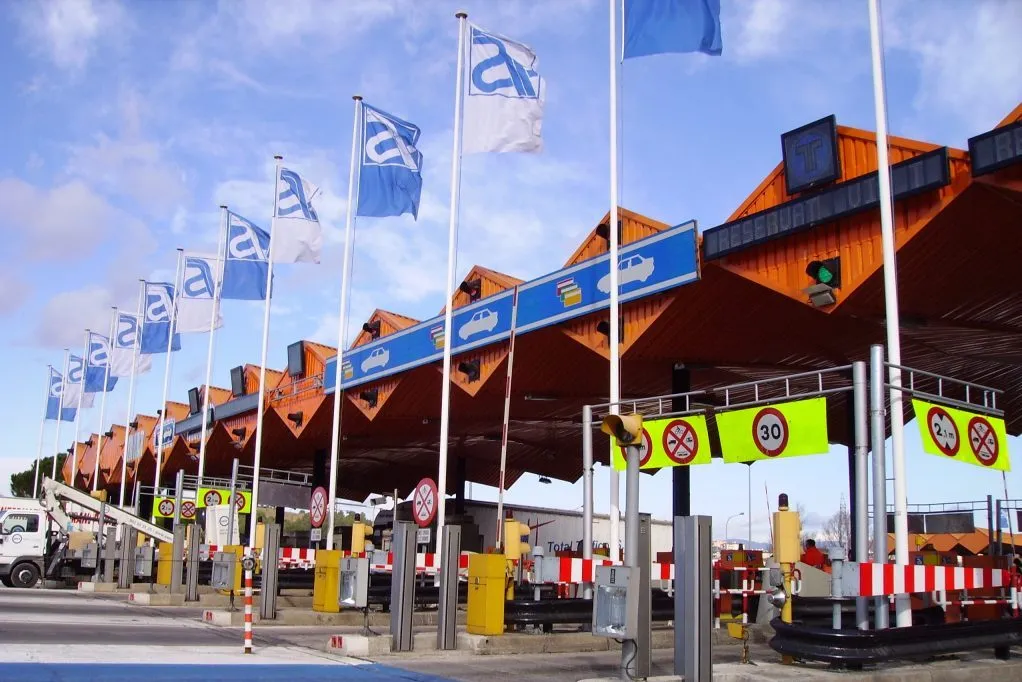
Toll roads in the US can be a real pain.
Back in 2012, Congress passed a law mandating that electronic tolling authorities come together to create a single toll payment system. It sounded promising, and it certainly would have made inter-state travel a breeze for drivers like you and me.
But it didn’t go so well…
The law to mandate one universal transponder has been largely ignored by toll agencies. Many toll roads across the country remain incompatible – meaning different toll roads often have different payment systems.
Plan your route
If you’re traveling across multiple states, you’ll need to plan ahead and identify any toll roads you may encounter. Otherwise, you run the risk of accidentally driving through an electronic toll system without paying.
If you fly through toll roads without a pre-payment plan and forget to pay, don’t be surprised if you return home from your road trip to find a few unwanted letters in your mailbox.
Yeah…been there, done that!
Google Maps can be a handy way to see if there are toll roads along your route. You can even use Google Maps to avoid tolls if you wish.
Simply input your destination, go into route options, and tap “avoid tolls” to bypass toll roads altogether.
Although Google Maps can help you identify toll roads, it won’t tell you how much your toll fees will be – or even estimate it, for that matter.
You could also use Tollsmart.
Tollsmart is a free toll calculator that can help you plan your route and estimate toll costs for toll roads, tunnels, and bridges.
Uproad – a toll payment app, also has a built-in trip calculator that lets you plan your trip in advance and track your total toll usage along your journey.
Paying for Tolls
Now, here’s where it gets complicated.
Toll roads exist in 38 states, and there are currently around 27 different toll pass systems.
Some overlap – but many don’t.
This means you’ll have to pre-plan and figure out how each toll road you encounter accepts payments.
E-ZPass is by far the most widespread system and exists in 19 of the states with toll roads.
E-ZPass is an automated toll collection system that allows drivers to pay electronically.
An electronic transponder or “tag” is attached to the windshield or license plate of your vehicle. This tag is linked to your bank account so that every time you drive on an E-ZPass approved toll road, the amount is automatically deducted. Done and dusted!
But unfortunately, as we have mentioned, EZ-Pass doesn’t cover every toll road in the United States.
In fact, for a trip that takes you from the coast of California to the coast of Florida, you’ll likely need 3 different transponders, each linked to a different toll agency.
Yes – how annoying.
Of course, you can always keep cash on you and pay with that, but many toll roads nowadays have gone fully electronic. So, if you don’t have a transponder and you can’t pay with cash, you may need to figure out how to pay your toll afterward online.

How does it work for rental cars?
Many rental car companies offer an option for a toll payment system that should work for all the states you’ll be visiting.
However, you’ll have to pay to use that toll system plus the cost of any tolls you encounter on your journey. Additionally, some car rental companies charge a daily fee for this system, regardless of whether you pass-through tolls or not. So, depending on how long your trip is – this could become quite costly.
Toll Apps
Several apps can make your life easier when it comes to paying for tolls. Using your phone’s GPS, electronic toll systems recognize when you’ve passed through a toll.
Aside from those apps that work for single states, I’ve only included those apps that work across several states.
Paytollo (covers 14 states)
Uproad – (most comprehensive – covers over 5000 miles of toll roads across 39 states).
ParkMobile – (covers 11 states)
Peasy – (covers 18 states but excludes many toll roads in each state)
PlusPass: (covers 8 states)
Toll App Pricing
Paytollo: $0.40 fee for each transaction
Uproad: 4.9 to 15.9% fee (capped at $1.99) per transaction. The “Pro” plan costs $4.99 a month and then each toll transaction is charged at the lowest 4.9%.
ParkMobile: $0.99 fee per toll
Peasy: $30 annual fee + $1/month. Then a $0.16 fee for each toll under $3/ $0.33 fee for each toll over $3
*There also seems to be a charge for each additional vehicle
PlusPass: 15% fee per toll
Are toll apps worth it?
Well, this comes down to how many toll roads you are going to pass on your travels. Or, how often you use toll roads day-to-day
With all the above apps, you’ll get to utilize the express lanes, which can save you time. You’ll also eliminate the need to have a transponder or tag attached to your vehicle.
Whether you think a toll app is worth it – really depends on whether you value convenience over sitting in toll lanes/paying online.
If you mainly travel within one state, you may be able to find an alternative app that works for the singular toll system you primarily use.
Otherwise, an app that covers multiple states, like Uproad, will probably work best for you if you’re planning to venture further.
Of all the toll payment apps, Uproad is also probably the simplest to use. Uproad has a built in Toll Alert feature that notifies you with a price estimate every time you pass a toll. Once the toll is confirmed, it’s paid automatically from your account balance or the payment method linked to your account.




